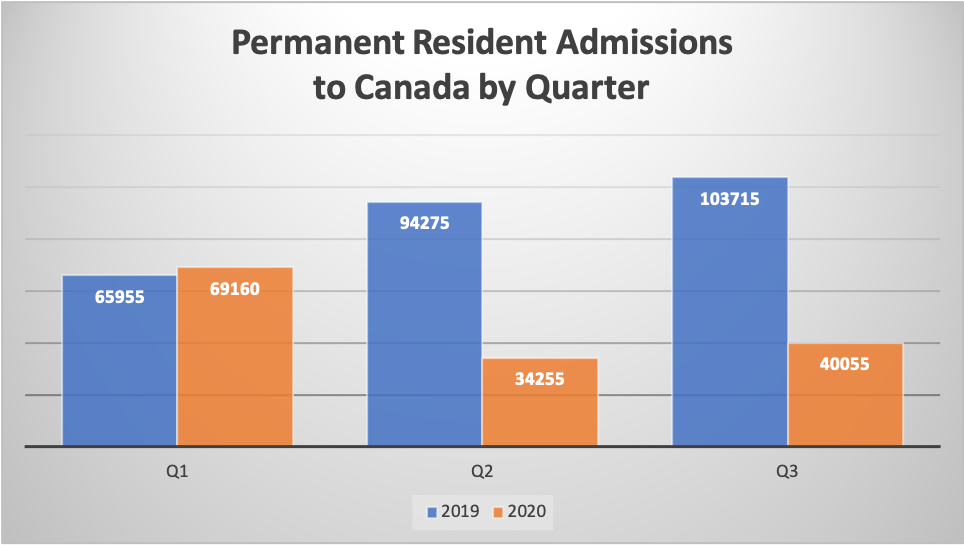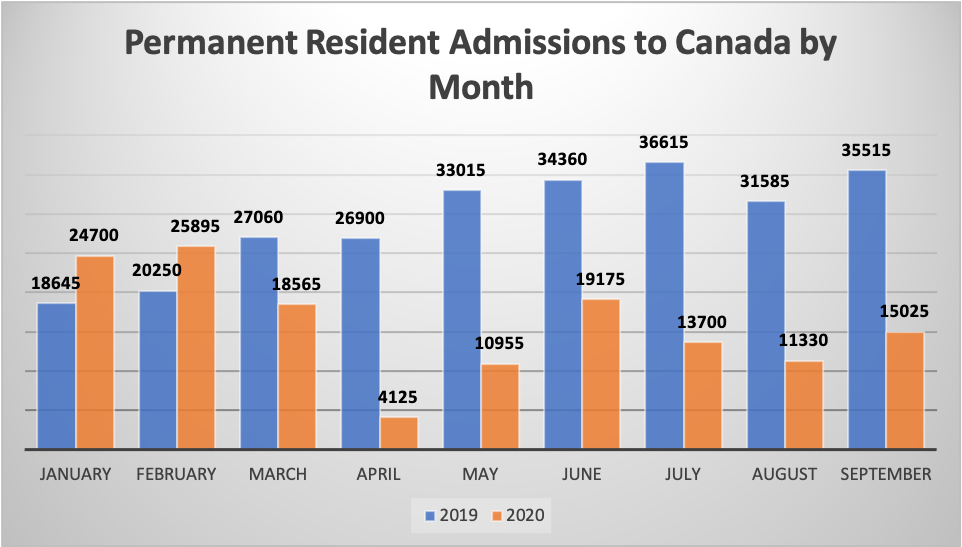
Travel restrictions in place due to the coronavirus pandemic continued to dramatically impact Canada’s permanent resident arrivals in September.
The 15,000 newcomers arriving in September means Canada welcomed just over 40,000 in the third quarter, slightly more than the previous quarter but less than half of the 104,000 arrivals in the same period of 2019.
In the first nine months of 2020, Canada saw 143,465 new permanent residents arrive, compared to 263,945 in 2019.
In a glimmer of recovery, September saw the second-highest number of arrivals for a complete month since COVID-19 took a grip in Canada midway through March.
International travel restrictions due to coronavirus are still in place and the Canada-U.S. border is still closed.
New ‘arrivals’ can either be candidates already in Canada transitioning from a temporary status or those from overseas covered by an exemption to travel restrictions.
Despite the current restrictions and the impact they are having, Ottawa recently announced its plan to significantly increase immigration from 2021 to kickstart the economic recovery from the pandemic.
Immigration Minister Marco Mendicino told parliament at the end of October that immigration levels would increase to more than 400,000 in 2021, and further over the next two years.
Read More
Canada Adds 84,000 Jobs As Coronavirus Recovery Slows But Continues
Canada To Welcome 400,000 Immigrants Per Year to Fuel Post-Coronavirus Economic Recovery
Canadian Citizenship Knowledge Tests: When Will They Resume Amid Coronavirus?
Current restrictions on international travel are in place until at least the end of November, as the federal government looks to quell the second wave of COVID-19 infections.
The current closure of the Canada-U.S. border is in place until November 21. It has already been extended several times since it was initially imposed in March.
The restrictions bar entry to all except citizens and permanent residents, with some exemptions.
Canada currently has exemptions in place for the following people, provided they are traveling for a non-discretionary reason.
- Seasonal agricultural workers, fish/seafood workers, caregivers and all other temporary foreign workers.
- International students who held a valid study permit, or had been approved for a study permit, when the travel restrictions took effect on March 18, 2020. More international students will be allowed to travel from October 20 under a new exemption.
- Permanent resident applicants who had been approved for permanent residence before the travel restrictions were announced on March 18, 2020, but who had not yet traveled to Canada.
- Immediate family members of Canadian citizens and permanent residents are also exempt if entering to be with an immediate family member for at least 15 days.
- Extended family members of citizens and permanent residents, plus foreign nationals traveling on compassionate grounds.
Recent news on the successful development of two coronavirus vaccines in the US means that a clearer picture is developing when Canada can begin to loosen travel restrictions.
Given the predictions being made by vaccine experts, it seems likely to be the second half of 2021 before international travel normality can start to resume.



